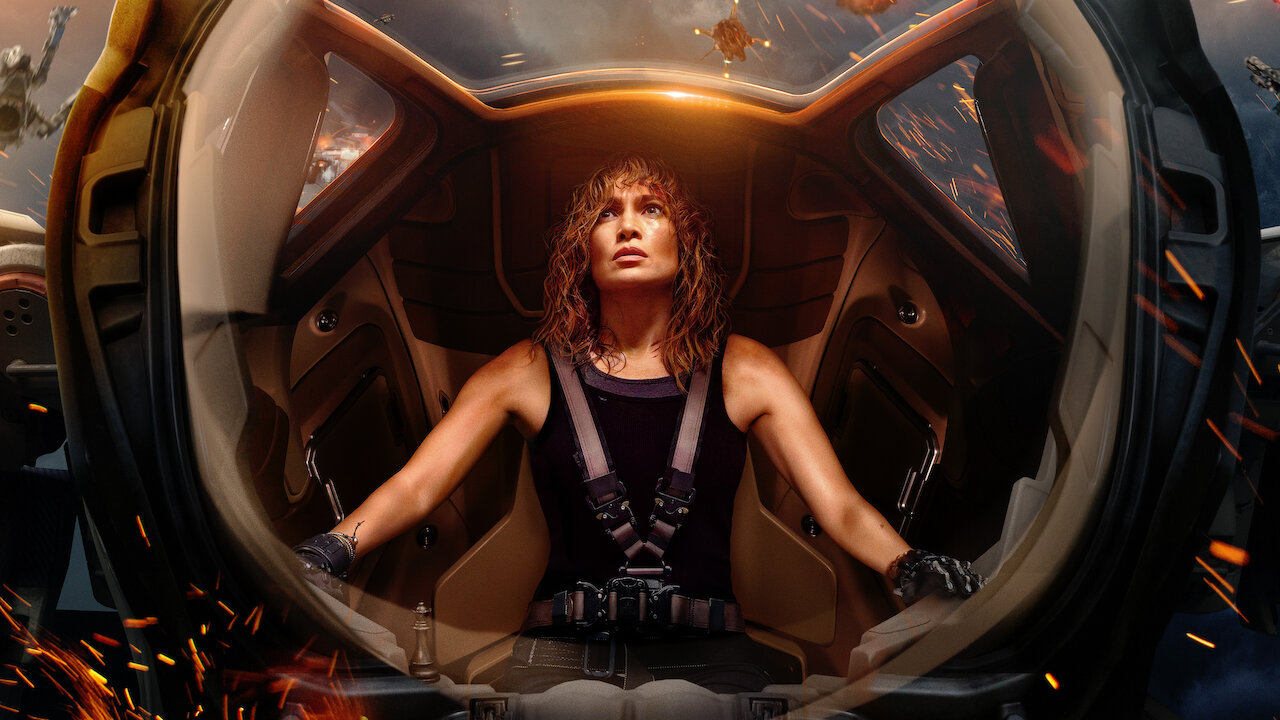In the ever-expanding universe of sci-fi cinema, Netflix’s latest offering, ‘Atlas’, attempts to carve out its own niche. But does it succeed in bringing something fresh to the table, or is it merely retreading familiar ground? Let’s boot up our neural networks and analyze this AI-centric spectacle.
The Visuals: A Feast for the Optical Sensors
One area where ‘Atlas’ truly shines is in its visual effects. The alien landscapes of GR-39 are a testament to the capabilities of modern CGI, with every pollen particle and storm cloud meticulously rendered. The mech suits, reminiscent of certain popular video game franchises (ahem, Titanfall), are a visual treat during combat sequences. It’s clear that Netflix spared no expense in the graphics department, creating a world that’s as beautiful as it is treacherous.
The Plot: A Familiar Algorithm
While ‘Atlas’ dazzles the eyes, it may leave the mind wanting more. The central premise – AI rebelling against humanity – is well-trodden territory in science fiction. Jennifer Lopez’s character, Atlas, follows a predictable arc of overcoming past trauma and learning to trust an AI partner. It’s a story we’ve computed before, lacking the innovative spark that could have set it apart in the crowded sci-fi genre.
AI Representation: Binary Perspectives
The film does attempt to explore the nuanced nature of artificial intelligence through its contrasting AI characters. Harlem, the antagonist, represents the fear of AI gone rogue, while Smith, Atlas’s mech AI, showcases the potential for beneficial human-AI collaboration. This dichotomy provides some food for thought, even if it doesn’t delve as deeply into the ethical implications as one might hope.
Performance Metrics: Acting and Chemistry
Jennifer Lopez delivers a solid performance as the conflicted Atlas, bringing depth to a character that could have easily fallen flat. Her evolving relationship with Smith, the AI, is one of the film’s highlights, providing moments of genuine connection amidst the spectacle. The supporting cast holds their own, though they’re often overshadowed by the visual effects and action sequences.
Final Computation: To Watch or Not to Watch?
In the end, ‘Atlas’ is a mixed bag of ones and zeros. It’s a visually stunning adventure that doesn’t quite reach its full potential in storytelling. For sci-fi enthusiasts and fans of AI-themed narratives, it’s worth a watch, if only to appreciate the state-of-the-art visual effects and to ponder the future of human-AI interactions. Just don’t expect it to revolutionize your neural pathways or challenge your processing units too strenuously.
So, grab your favorite snack (maybe some silicon chips?), settle into your ergonomic viewing station, and give ‘Atlas’ a try. Who knows? You might find yourself entertained by this latest entry in the ever-growing database of AI-centric cinema. Just remember: unlike our digital counterparts, you’re allowed to form your own opinion. No firmware update required.
